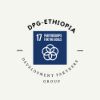Breadcrumb
The Government of Ethiopia and the Basic Service Delivery Group (BSDG) of Development Partners conducted a semi-annual Joint Review and Implementation Support (JRIS) mission and agreed on priorities and specific deliverables for the next six months.
The three day mission assessed the status of education and health services and the specific service delivery and system strengthening programmes with a focus on data quality and Management Information Systems (MIS) in Education and Health sectors which was also the focus of the pre-JRIS field mission to SNNPR and Afar regions.
The mission, from 14 to 16 November 2017 at the Ministry of Finance and Economic Cooperation (MoFEC), was jointly organized by the MoFEC Channel One Programmes Coordination Directorate (COPCD) and the Service Delivery Secretariat (SDS).
The mission also noted the existence of sector specific strategies and initiatives to improve equity and encouraged all sectors to consider the wider dimensions of equity as they develop and operationalize strategies to promote equity.
The mission emphasized data quality is key to improve the quality and equity of basic service delivery by informing policy making and decisions. While Education and health sectors were assessed to have strong management information systems, findings from the field and the discrepancies between administrative data and DHS suggested room for improvement and the need for continued investment to build MIS capacities especially at the local levels.
The mission noted significant achievements in the delivery of education and health services. Notable results include the following.
Notable results include the following. Improvement in grade 5 and grade 8 completion rates to 71% and 54% respectively in 2015/16 from 61% and 51% in 2014/15. Primary School Net Attendance Ratio for the lowest wealth quintal increased to 56.6% in 2016 from 52% in 2011. Pupil Teacher Ratio of 54 and 35 for lower and upper primary, respectively. Contraceptive Acceptance Rate of 71% (HMIS). As per DHS 2016 the use of any method of family planning by married women has increased more than fourfold from 8% in 2000 to 36% in 2016. Similarly, modern method use has increased fivefold from 6% to 35% during the same period. ANC4 coverage stood at 76.6% (HMIS) 32% (2016 DHS up from 10% in 2000). Penta 3 coverage of 97% (53.2% per 2016 DHS), Skilled Birth Attendance coverage of 71% (HMIS) in 2016/17 28% per DHS 2016 (up from 6% in 2000). Infant mortality has decreased from 97 deaths per 1,000 live births in 2000 to 48 in 2016. During the same period, under-5 mortality has markedly declined from 166 to 67 deaths per 1,000 live births.
 Led by H.E Ato Admasu Nebebe, State Minister, MoFEC, the joint mission was attended by representatives form MoFEC, Ministry of Education, Ministry of Health, the Ministry of Agriculture and Natural Resources, the Ministry of Water, Irrigation and Electricity, the Ministry of Environment, Forest and Climate Change, Ethiopian Roads Authority, the Ethiopian Institution of the Ombudsman, Office of the Federal Auditor General, the Federal Public Procurement and Property disposal Agency, the Accountants and Auditors Board of Ethiopia, the Central Statistics Agency and regional participants drawn from the Bureaus of Finance and Economic Development, the five basic sector Bureaus, and from the Offices of Regional Auditor Generals (ORAGs).
Led by H.E Ato Admasu Nebebe, State Minister, MoFEC, the joint mission was attended by representatives form MoFEC, Ministry of Education, Ministry of Health, the Ministry of Agriculture and Natural Resources, the Ministry of Water, Irrigation and Electricity, the Ministry of Environment, Forest and Climate Change, Ethiopian Roads Authority, the Ethiopian Institution of the Ombudsman, Office of the Federal Auditor General, the Federal Public Procurement and Property disposal Agency, the Accountants and Auditors Board of Ethiopia, the Central Statistics Agency and regional participants drawn from the Bureaus of Finance and Economic Development, the five basic sector Bureaus, and from the Offices of Regional Auditor Generals (ORAGs).
The Basic Delivery Service Group comprises African Development Bank, Austrian Development Cooperation, the European Union, Italian Agency for Development Cooperation, the UK’s Department for International Development, and the World Bank.
